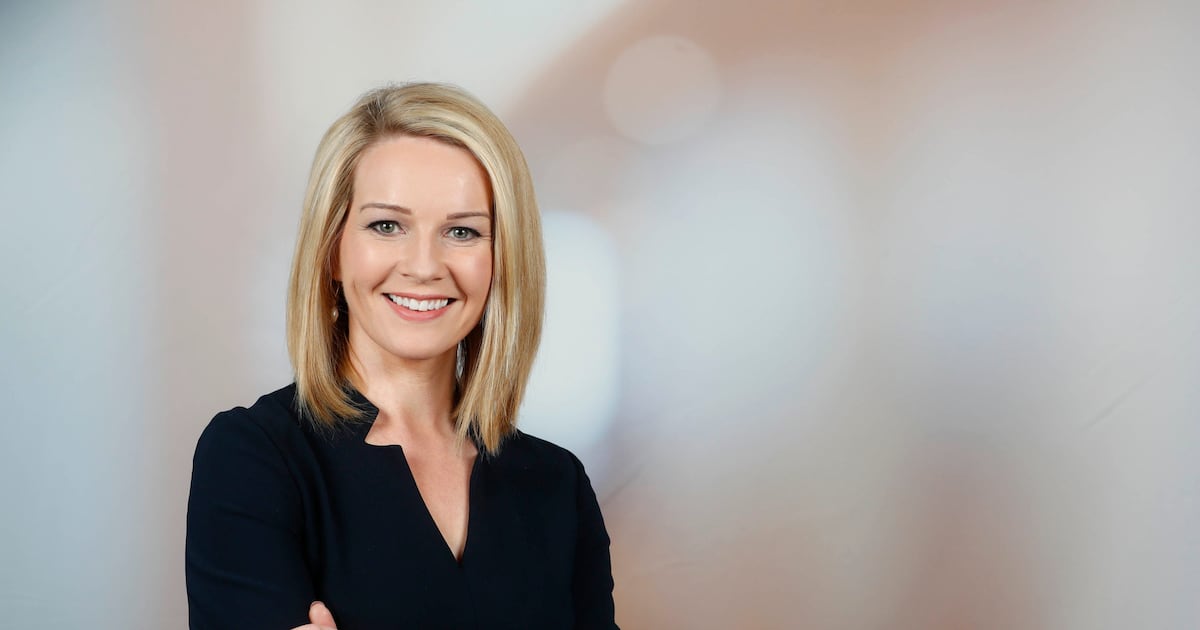Entertainment
Claire Byrne Tackles Health and Education Concerns on RTÉ Radio

On RTÉ Radio 1’s *Today with Claire Byrne*, the host opened a discussion on the potential resurgence of the plague, juxtaposing the backdrop of summer’s end with an unsettling query: “The plague: is it back?” The conversation featured renowned biochemistry professor Luke O’Neill from Trinity College Dublin, who provided insights on a recent case of bubonic plague in California attributed to a flea bite. O’Neill reassured listeners that modern antibiotics effectively treat the disease, contrasting today’s medical advancements with the historical devastation of the Black Death that claimed a third of Europe’s population.
Byrne and O’Neill then transitioned to the pressing issue of climate change. O’Neill noted that rising temperatures are likely contributing to the emergence of mosquitoes in Ireland. Byrne’s response, “I’m delighted to hear this,” showcased her ability to maintain a light-hearted tone even in serious discussions. Fortunately, O’Neill confirmed that the mosquitoes currently found in Ireland pose no health risks.
As the conversation continued, Byrne addressed practical concerns of returning to school and the anxieties faced by students awaiting offers from the Central Applications Office (CAO). In a more serious tone, she discussed the impact of a growing population and grade inflation on college admissions, raising alarm about the increasing points required for many courses.
In a conversation with Prof. David Malone from Maynooth University, listeners learned that a population spike from increased births between 2005 and 2010 has led to heightened pressure on third-level education. Malone emphasized that the situation is unlikely to improve until at least 2028, stating, “If you’re banking on the population going down in the next couple of years, no.”
The discussion shifted to childcare issues on *The Hard Shoulder* (Newstalk), where host Kieran Cuddihy addressed a report revealing that 40,000 children nationwide are currently on waiting lists for crèches. Providers cited staffing shortages as a primary obstacle, with qualified childcare workers seeking pay parity with teachers. Cuddihy provocatively suggested that removing the requirement for extensive qualifications could provide a solution, sparking debate on the professionalism of childcare work.
In response to criticism, he acknowledged that his proposal had “opened a can of worms,” later continuing the conversation in a more serious manner. He engaged with Elaine Dunne from the Federation of Early Childhood Providers and Alison Pasquier, a primary school principal. Dunne defended the necessity of training in understanding child development, while Pasquier highlighted the foundational role early education plays in preparing children for school.
The ongoing challenges in childcare were further complicated by geographical disparities, with Dunne pointing out that some areas suffer from a shortage of crèches, while others face oversupply. This imbalance underscores the complexities of Ireland’s childcare system, where government-funded early-education schemes operate within a predominantly private framework.
As the week unfolded, Cuddihy also reflected on the first day of school for junior infants in Co Louth. He noted that many of these children, born during the pandemic, are now facing unique challenges. Child psychologist Dr. Elaine McCarthy reported that these “Covid babies” may experience heightened levels of separation anxiety and developmental issues, rendering them less prepared for school.
The conversations on RTÉ and Newstalk reveal a landscape where public health concerns and educational pressures intersect, illustrating the ongoing impact of recent global events on everyday life. The discussions not only highlighted immediate challenges but also provided valuable insights into the evolving educational needs of Ireland’s youth.
-

 Top Stories3 months ago
Top Stories3 months agoTributes Surge for 9-Year-Old Leon Briody After Cancer Battle
-

 Entertainment4 months ago
Entertainment4 months agoAimee Osbourne Joins Family for Emotional Tribute to Ozzy
-

 Politics4 months ago
Politics4 months agoDanny Healy-Rae Considers Complaint After Altercation with Garda
-

 Top Stories4 months ago
Top Stories4 months agoIreland Enjoys Summer Heat as Hurricane Erin Approaches Atlantic
-

 World5 months ago
World5 months agoHawaii Commemorates 80 Years Since Hiroshima Bombing with Ceremony
-

 Top Stories3 months ago
Top Stories3 months agoNewcastle West Woman Patricia Foley Found Safe After Urgent Search
-

 Top Stories5 months ago
Top Stories5 months agoFianna Fáil TDs Urgently Consider Maire Geoghegan-Quinn for Presidency
-

 World5 months ago
World5 months agoCouple Convicted of Murdering Two-Year-Old Grandson in Wales
-

 World5 months ago
World5 months agoGaza Aid Distribution Tragedy: 20 Killed Amid Ongoing Violence
-

 World5 months ago
World5 months agoAristocrat Constance Marten and Partner Convicted of Infant Murder
-

 Top Stories4 months ago
Top Stories4 months agoClimbing Errigal: A Must-Do Summer Adventure in Donegal
-

 Top Stories4 months ago
Top Stories4 months agoHike Donegal’s Errigal Mountain NOW for Unforgettable Summer Views









